

James Wong
1 Month Ago
Established rivals should be shaking in their boots as the second-gen MG HS packs effortless driving dynamics with pseudo-premium looks.
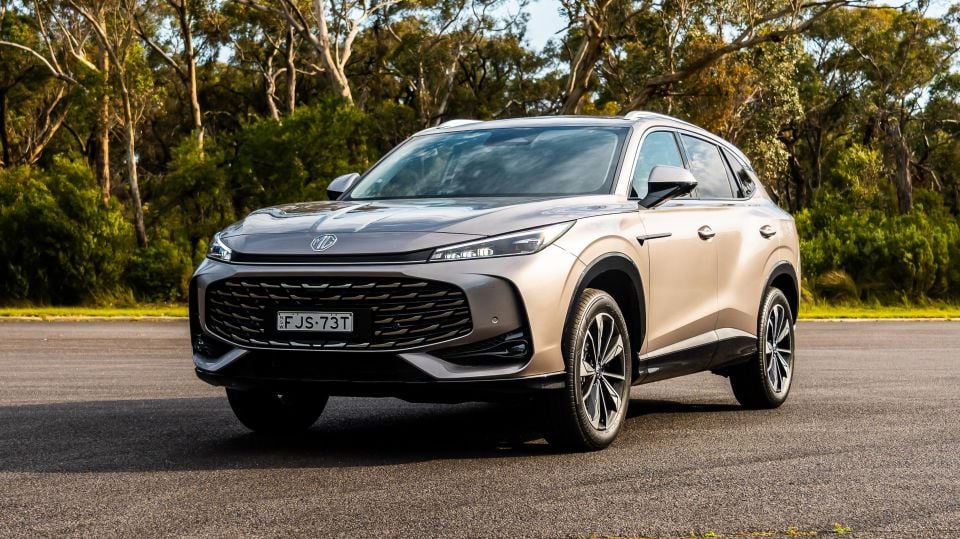
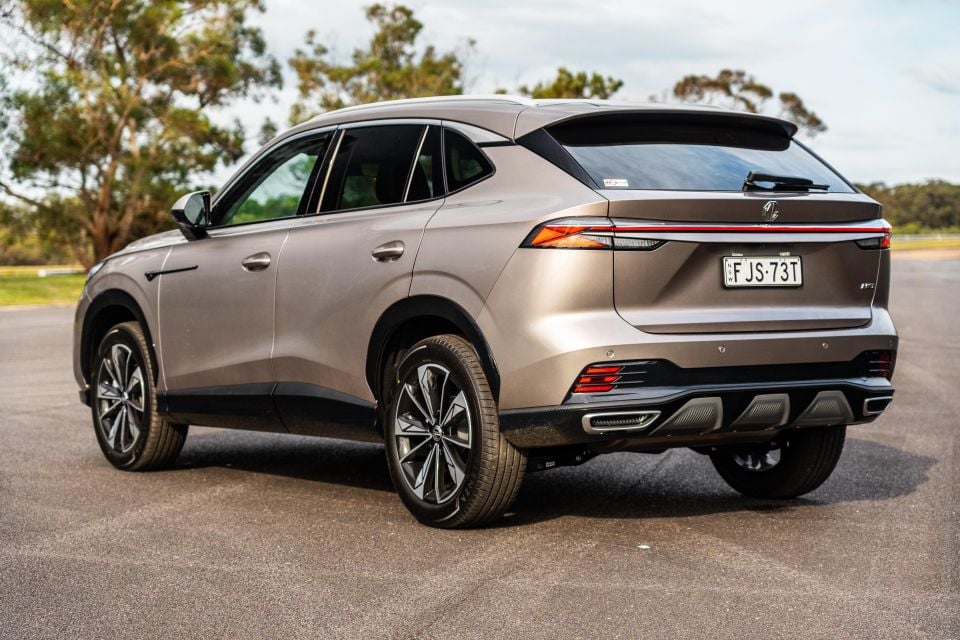

Quickly see how this car stacks up against its competition. Select any benchmark to see more details.
Take advantage of Australia's BIGGEST new car website to find a great deal on a MG HS.
Just over four years after its predecessor’s local launch in early 2020, a new MG HS has arrived in Australia and it takes a dramatic step forward.

This previously dull, lumpy and tacky mid-sized SUV has been revamped in second-generation guise, while still retaining a relatively affordable price point. Sure, a price increase of up to $7000 is nothing to sneeze at, but this car is so much better.
The MG HS is now essentially a rebadged version of the Chinese-market RX5 from fellow SAIC Motor brand Roewe. It bears a new design language in keeping with new MG models like the latest MG 3, MG 4 and ZS.
This mid-size SUV – MG’s direct competitor for the top-selling Toyota RAV4 – is larger than before, with the biggest increase being between the axles. This has allowed for more interior and boot space.
Under the bonnet there’s a reworked 1.5-litre four-cylinder turbo-petrol engine that produces more power and torque, plus there’s new wet seven-speed dual-clutch automatic transmission that’s claimed to reduce low-speed awkwardness.
WATCH: Paul’s video review of the MG HS Essence
Inside, there’s new setup including a wraparound display that houses a 12.3-inch digital instrument cluster and 12.3-inch touchscreen infotainment system.
MG has also packed in a more comprehensive suite of safety systems and driver assists. This car has ever-evolving competition in the hotly contented mid-size SUV segment. Is it up to the task?
Compared to the previous-generation model, the now flagship MG HS Essence is $7000 more expensive.
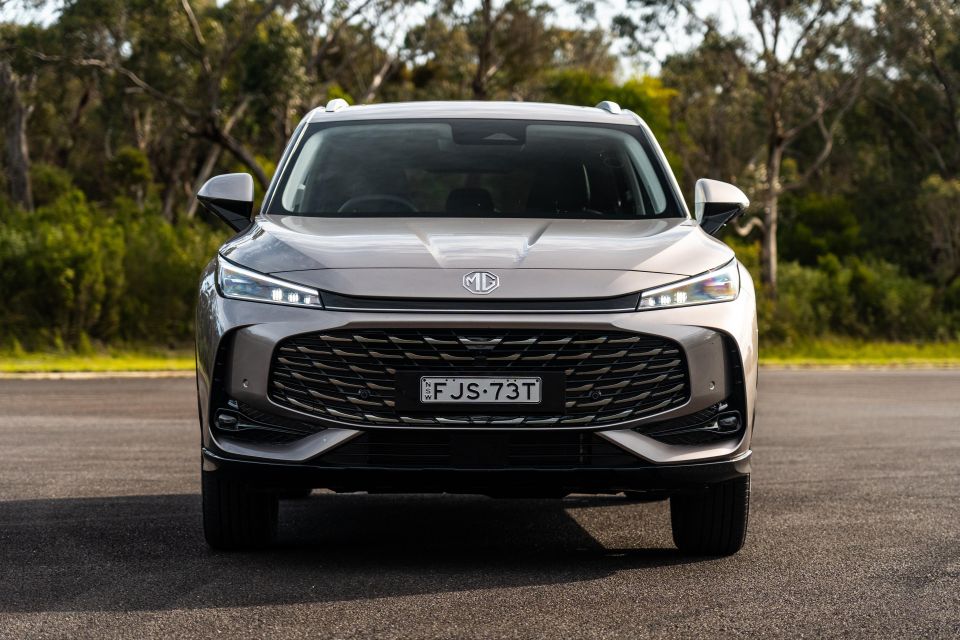
| Model | Drive-away pricing |
|---|---|
| 2025 MG HS Vibe | $33,990 (+$4000) |
| 2025 MG HS Excite | $36,990 (+$5000) |
| 2025 MG HS Essence | $40,990 (+$7000) |
To see how the MG HS lines up against the competition, check out our comparison tool.
Now this is a BIG improvement over the old model… and this isn’t something I expected to say, especially about an MG.
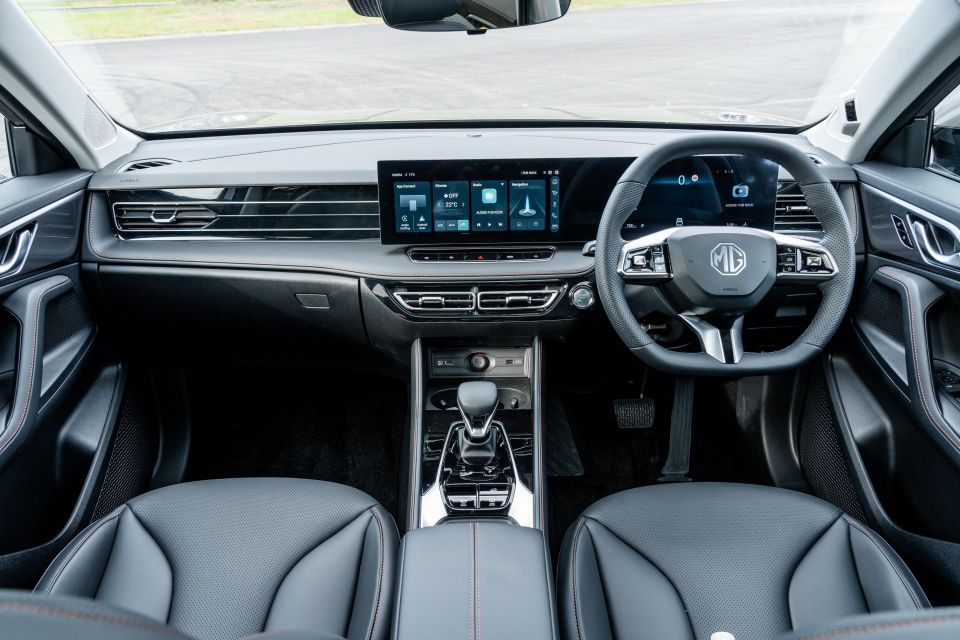
Overall, the interior looks and feels more high-end, and that’s a big deal when this vehicle still competes at the budget end of the segment.
All of the high-touch points are soft, and even though there are harder finishes on the dash and door cards, it has fake stitching so it still looks fancy.
Hopping into the cabin is pretty easy thanks to the high ride height that’s synonymous with crossover SUVs. This is great if you’ve got poor mobility and can’t climb too far up or down into a vehicle.
Once you’re in, there are inoffensive-looking seats that in this flagship Essence variant are covered in faux leather. They’re surprisingly comfortable and offer enough support for long trips, unlike the seats in the old model.
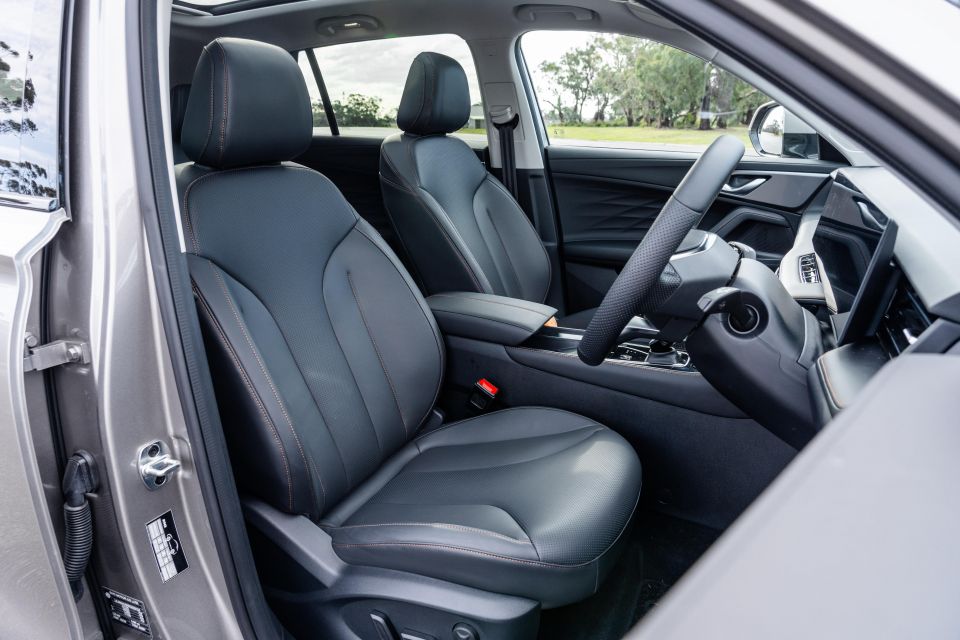
The driver’s seat offers six ways of electric adjustment, plus four-way electric lumbar support and position memory, though like the previous-generation you’re unable to adjust the thigh support.
Thankfully, you don’t feel like you’re going to slide off the seat as much, but it would be nice to dial in more thigh support so long-legged people can feel more comfortable.
The front passenger seat also offers four ways of electric adjustment, which is pretty unique at this end of the segment.
Both front seats offer heating but you need to activate it using the touchscreen. This can be a bit of a hassle if you’re on the move as you need to enter the climate sub-menu from the home screen. It would be nice if there were shortcut buttons, especially while you’re using smartphone mirroring.
Ahead of the driver is a big, squared-off steering wheel that dominates the cabin. It looks cool and feels nice to touch, though for some it might be a little too large. The flat top and bottom can also be annoying when twirling the wheel.
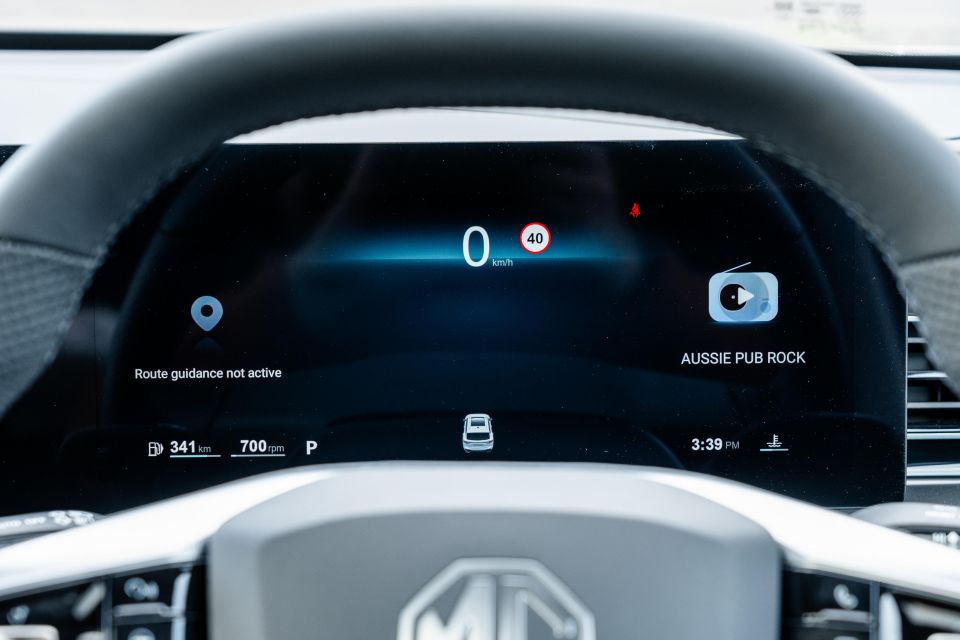
The buttons and knobs on either side of the steering wheel don’t make immediate sense, though thankfully they’re a little more clearly labelled than in the MG 4. The left knob is dedicated for the adaptive cruise control, though it took me a considerable amount of time to remember the button with the steering wheel icon is the set button.
I do appreciate the configurable buttons on either side of the steering wheel as they can act as a shortcut to the vehicle settings. You can then swiftly turn off specific safety systems.
The use of piano-black trim on the steering wheel, however, is disappointing as after a week it was already grimy and gross-looking. It’s also prone to scratches when you clean it.
Behind the large steering wheel is the centrepiece of the HS interior – a wraparound display that houses the digital instrument cluster and touchscreen infotainment system. It’s by no means unique in terms of design and is clearly inspired by a number of other carmakers.
The digital instrument cluster measures in at a generous 12.3 inches and appears high-resolution. It can be configured in numerous ways, though none stand out as they’re all so minimalist. Disappointingly, there’s no traditional tachometer and speedometer dial option.
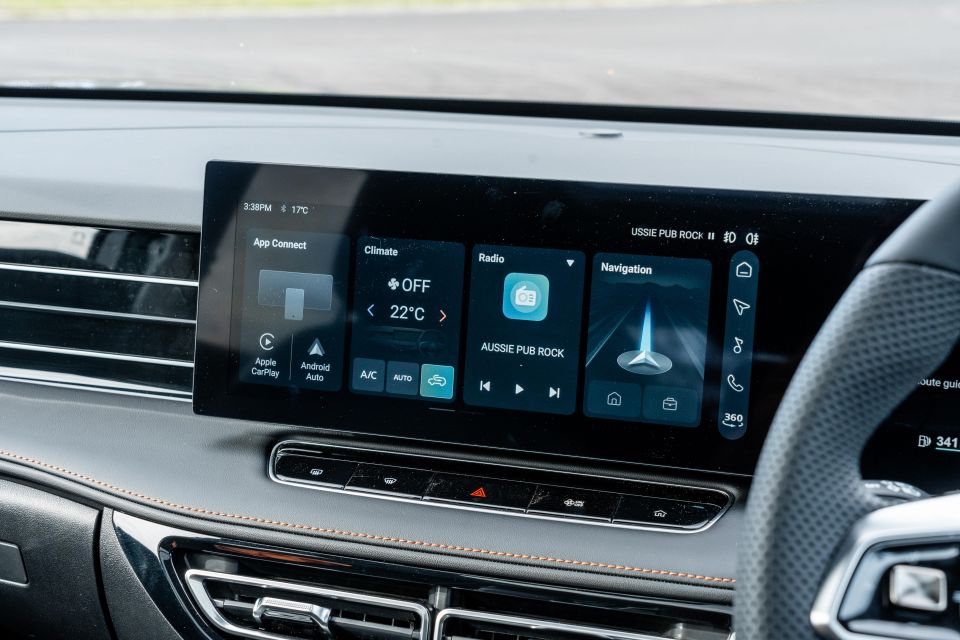
Moving across, the 12.3-inch touchscreen infotainment system looks large and befitting of a brand-new car at this price point. The interface is pretty simplistic and easy to navigate once you’re acquainted, though jumping from page to page can result in lag.
This is most noticeable when entering smartphone mirroring. There were occasions where I pressed the Apple CarPlay icon one, two, and sometimes three times before it actually opened properly.
Speaking of smartphone mirroring, the 2025 MG HS only offers wired connectivity of Apple CarPlay and Android Auto through a USB-A port. This is a little disappointing for a new-generation car, especially when wireless smartphone mirroring and USB-C connections are becoming more commonplace.
Despite only being wired, the connection with my iPhone 15 Pro Max was flawless during my week of testing, as it should be.
An annoyance when in smartphone mirroring mode is that there’s no easy way to change the climate controls. You need to click the home button under the touchscreen and then tap the screen to open the proper climate control sub-menu.
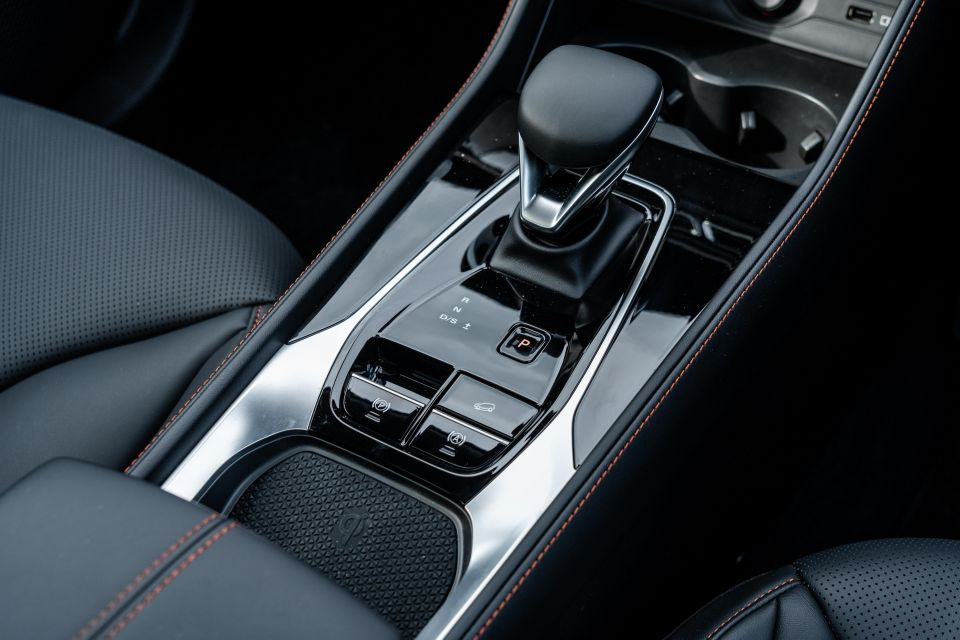
It’d be nice if there were shortcut buttons always on the screen to change these climate-related functions. Perhaps that’s something for a future software update.
It can be a hassle at first to change the climate controls but once you’ve become acquainted with the vehicle it becomes part of a routine. On the move, however, it requires you to take your eyes off the road for a longer period of time.
There’s built-in satellite navigation that’s handy to have when you don’t have phone service and need to find your way. Throughout my testing, however, I stuck with using Google Maps through smartphone mirroring.
On the centre tunnel there’s liberal use of piano-black material, which is disappointing because it looked great when I picked the car up, but became dusty almost immediately. It also gets scratched easily when wiped clean.
The leather-wrapped gear selector feels nice in the hand, and once you get to grips with its operation it’s easy to use.
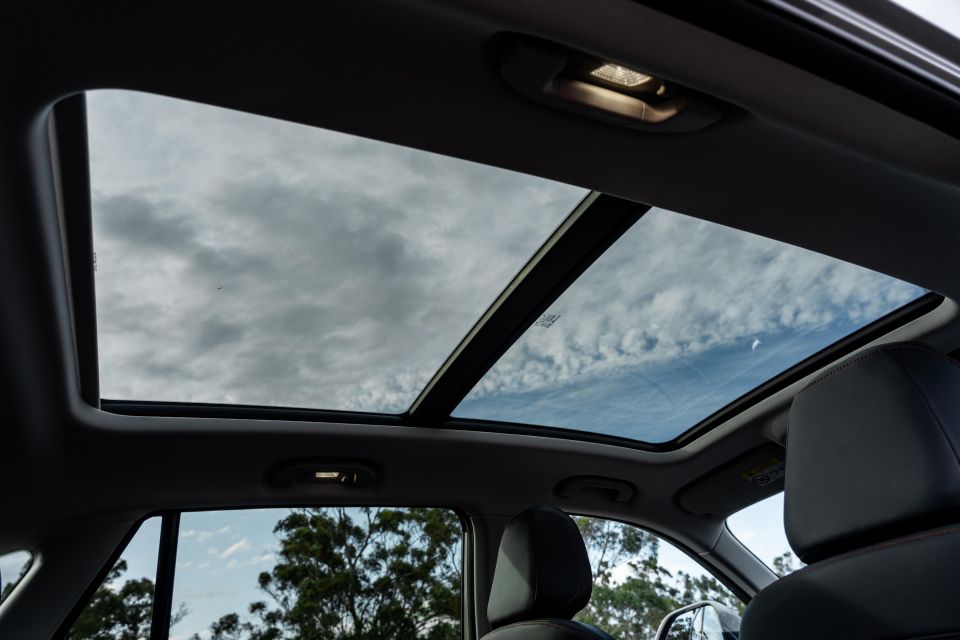
Storage space up front is pretty standard with an adequate centre console box and glovebox. There’s also a wireless phone charger, sunglasses holder and two cupholders, as well as decent bottle holders in the door cards.
I like the panoramic glass sunroof on this flagship model as it helps brighten up the cabin. It’s also nice it opens to allow more air flow. One gripe, however, is that it rattled – I also experienced this in a previous-generation HS.
One thing I’ll mention before discussing the second row is this car’s eight-speaker sound system is surprisingly great. It’s unbranded but definitely punches above its weight.
The second row in the MG HS is arguably the place to be. There’s a surprising amount of space back there and there’s no noticeable downgrade in quality.
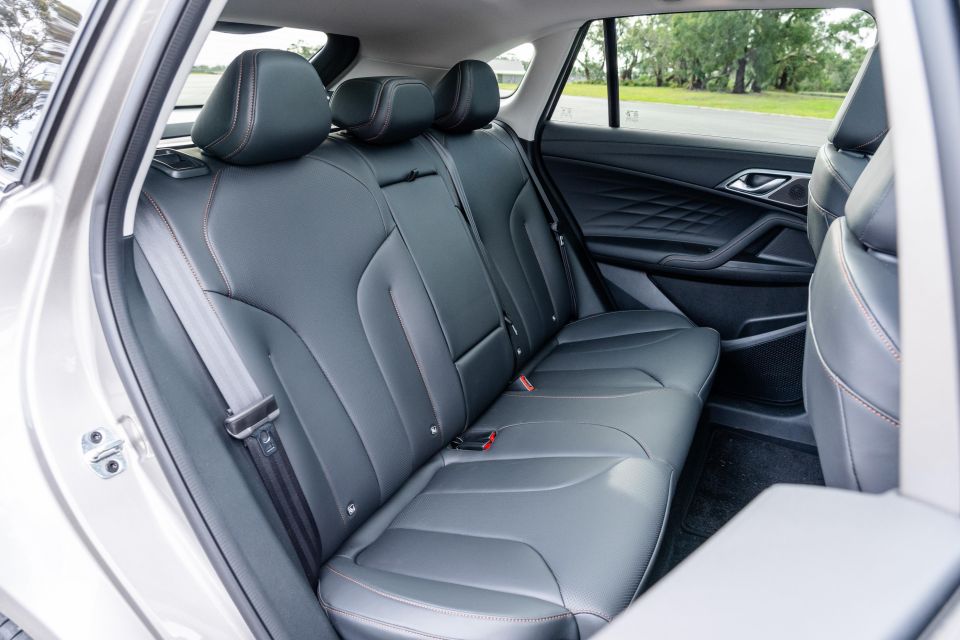
The second-row bench seat is comfortable and plush enough for people to get comfortable for long trips. At a leggy 182cm, I had plenty of leg, head, shoulder and feet space.
Thanks in part to the almost flat floor, which is rare in a internal combustion engined (ICE) vehicle, the middle seat isn’t impeded for space. Three people can fit across the bench seat with ease, though two people would be more comfortable on longer journeys.
In terms of second-row amenities there are rear centre console-mounted air vents and USB-A ports, as well as a fold-down armrest with cupholders.
There are also ISOFIX points on the two outboard seats, as well as top-tether points for all three second-row seats. This is pretty standard for mid-size SUVs.
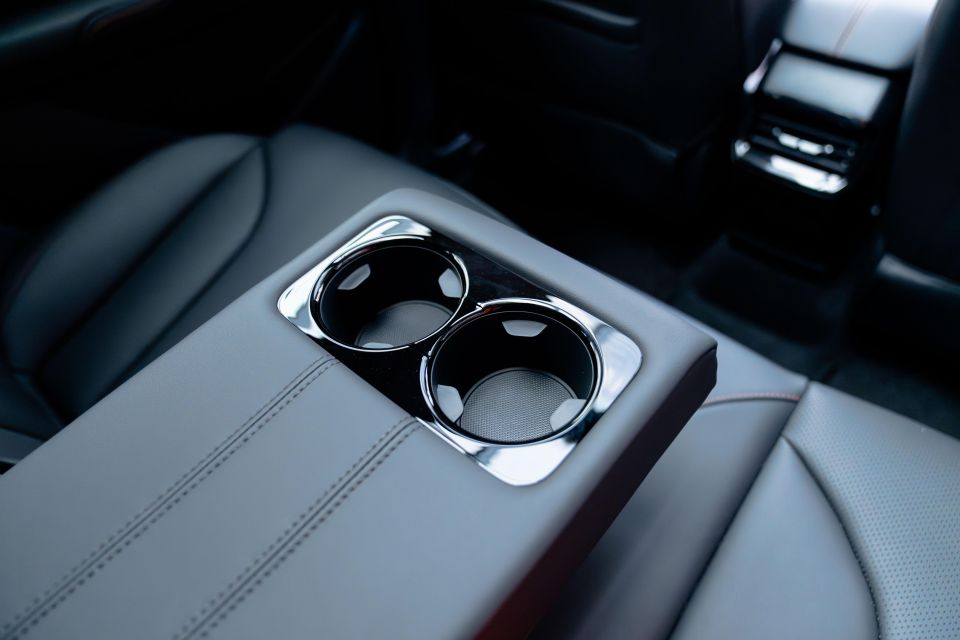
Around the back the powered tailgate beeps obnoxiously when opening and closing. It’s not quite as loud as a Toyota, for example, but you may still get some looks in the carpark.
Once the tailgate is open the boot space is better than before, but it’s still not segment-leading. MG claims there’s 507L of boot capacity with the rear seats upright, and in practice it’s a usable and square space. And there’s no load lip, meaning items can be lifted into the boot easily.
Boot-related amenities are slim, including a cargo cover, small light, and netted section off to the left-hand side.
Under the boot floor is a space-saver spare wheel, which is nice to have if you have a puncture. It’s not quite as handy as a proper full-size spare, but is considerably better than a tyre repair kit.
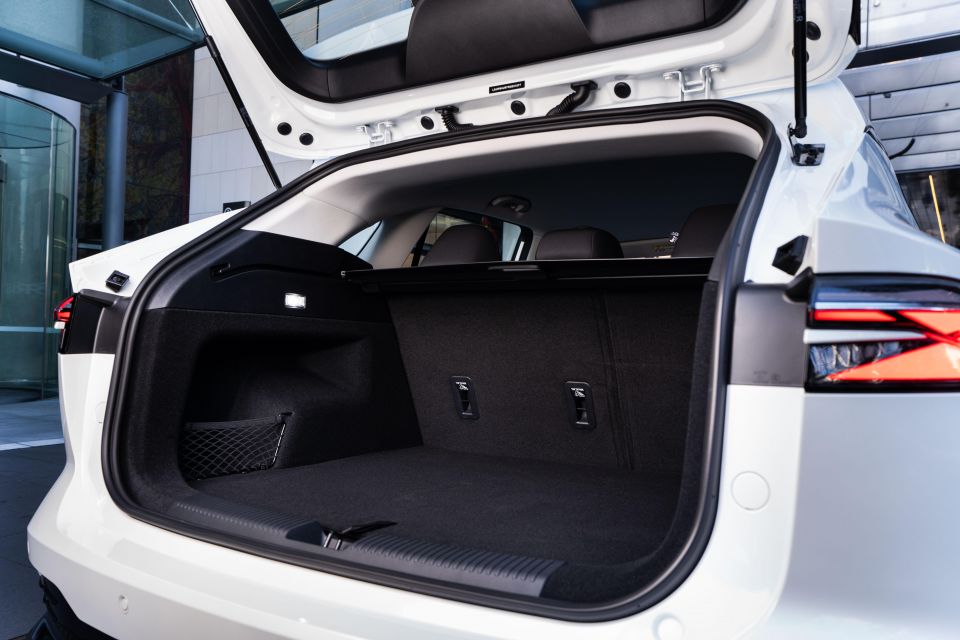
| Dimensions | MG HS |
|---|---|
| Length | 4655mm |
| Width | 1890mm |
| Height | 1655mm |
| Wheelbase | 2765mm |
| Cargo capacity | 507 litres (5 seats) 1484 litres (2 seats) |
To see how the MG HS lines up against the competition, check out our comparison tool.
The 2025 MG HS is powered by a reworked 1.5-litre turbocharged four-cylinder petrol engine that produces 6kW and 25Nm more than the previous-generation model. There’s also a new seven-speed wet dual-clutch automatic transmission that replaces the old dry dual-clutch setup.
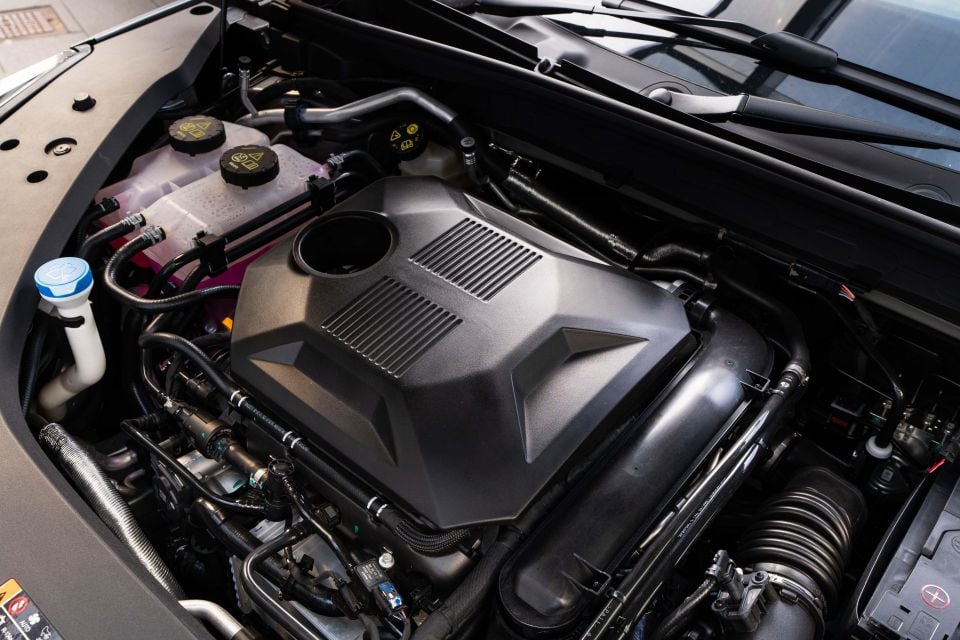
| Specifications | MG HS Essence |
|---|---|
| Engine | 1.5L 4cyl turbo |
| Power | 125kW |
| Torque | 275Nm |
| Transmission | 7-speed DCT |
| Driven wheels | FWD |
| Weight | 1599kg (tare) |
| Fuel economy (claimed) | 6.9L/100km |
| Fuel economy (as tested) | 8.3L/100km |
| Fuel tank capacity | 55 litres |
| Fuel requirement | 95 RON |
| CO2 emissions | 156g/km |
| Braked tow capacity | 1500kg |
To see how the MG HS lines up against the competition, check out our comparison tool.
Just like the interior, the way this new-generation MG HS drives is a massive improvement over the outgoing model.
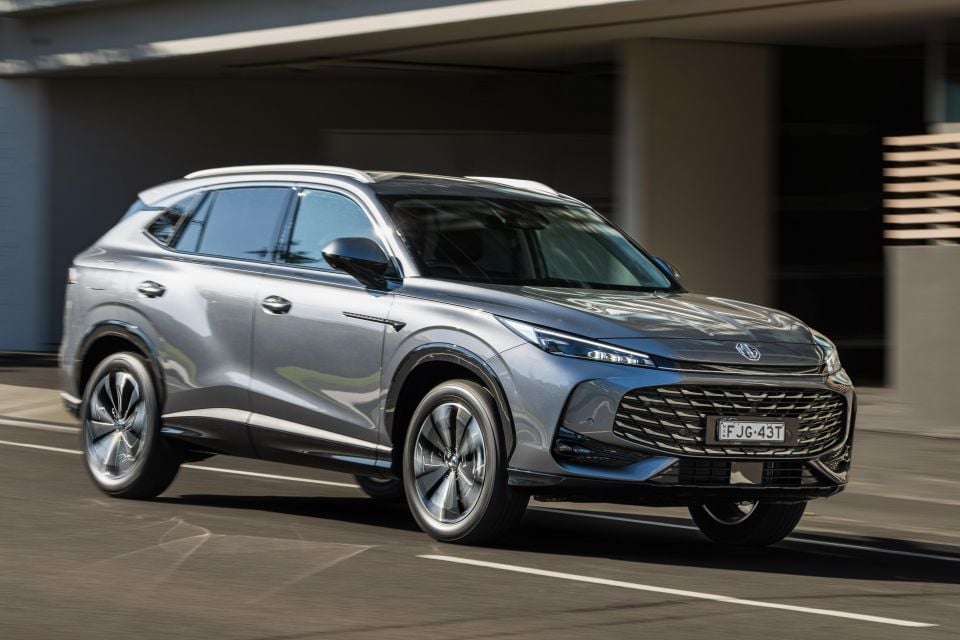
Find out more about the car
When the 1.5-litre turbo-petrol engine switches on it idles away quietly – even when warming up – and never makes its presence too obvious in the cabin. After 30 seconds or so the engine idles down to a point where it’s almost imperceptible inside.
Setting off is where one of the biggest improvements is apparent. MG has fitted a new wet dual-clutch transmission (DCT) that helps to remove low-speed quibbles and hesitations that plagued the old model.
In practice, it’s a fantastic dual-clutch auto that operates much like a Volkswagen Group unit. I’d almost go as far to say that in some respects it’s better than some low-end VW DSG transmissions.
There’s no learning curve to smooth acceleration from a standstill, unlike with other DCTs. You can barely tell when gears are being changed, and it’s willing to drop down a gear if there’s a hill or you press the accelerator a bit harder.
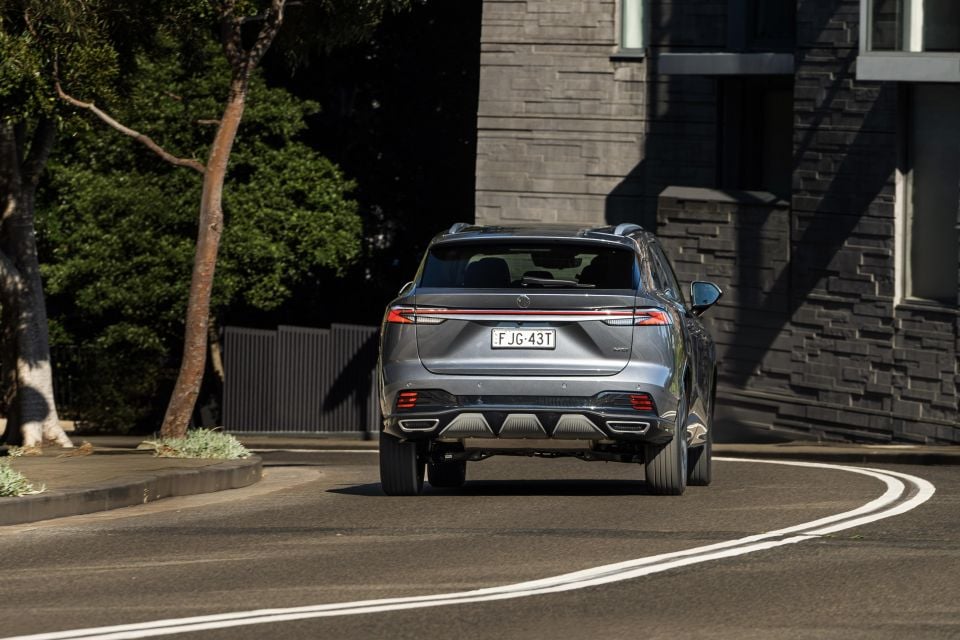
This new DCT isn’t perfect, however. When reverse is selected and you’re on a decline, the car will sometimes roll forward before properly engaging the gear. This is a common complaint with DCT-equipped cars that can be fixed with having a more active hill-hold or auto-hold system.
Regardless, it can be scary or potentially dangerous if there’s a parked car or obstacle ahead of the vehicle.
The reworked turbo-petrol engine married to this DCT transmission also shines. It’s a peppy unit that produces more power and torque than before, though the gain isn’t noticeable from the seat of the pants.
If you listen closely you can actually hear the turbo spooling up when accelerating. This isn’t something you hear in a regular mid-size SUV.
It can sometimes feel the car is always in sport mode, but after a while you get used to how much throttle you need to apply. It’s great if you partake in the traffic light grand prix.
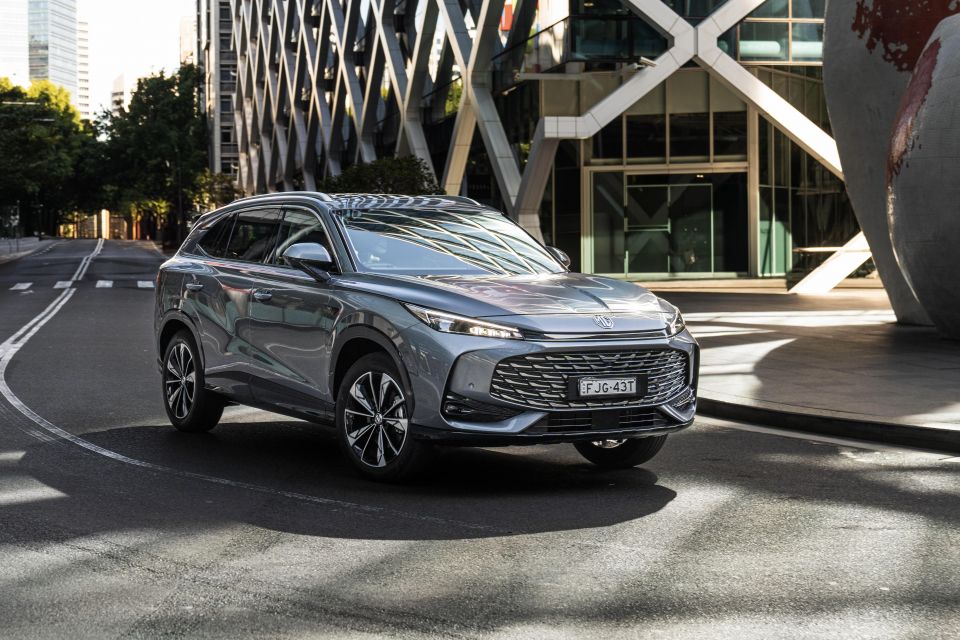
There is an actual sport mode but it doesn’t make the car feel any faster. Instead it just holds the gears longer and revs the engine out, which doesn’t feel or sound that great from the cabin.
Something to note is the entire new-generation MG HS range is only available with front-wheel drive. Despite this, I didn’t encounter any front-wheel slip in everyday urban driving, which is arguably where this car will spend most of its time.
One catch is there’s no engine idle stop/start system, so if you’re in stopped in heavy traffic or at the traffic lights the engine will stay running. For some this may be seen as a benefit, but ultimately it blows out the urban fuel consumption figure.
This is disappointing because the reworked turbo-petrol engine is incredibly efficient in the right circumstances. During one particular highway run I achieved an average fuel consumption of 5.9L/100km.
Around town, this car is very quiet. MG has done a great job of insulating the cabin because you can barely hear the petrol engine and there’s very little road noise.
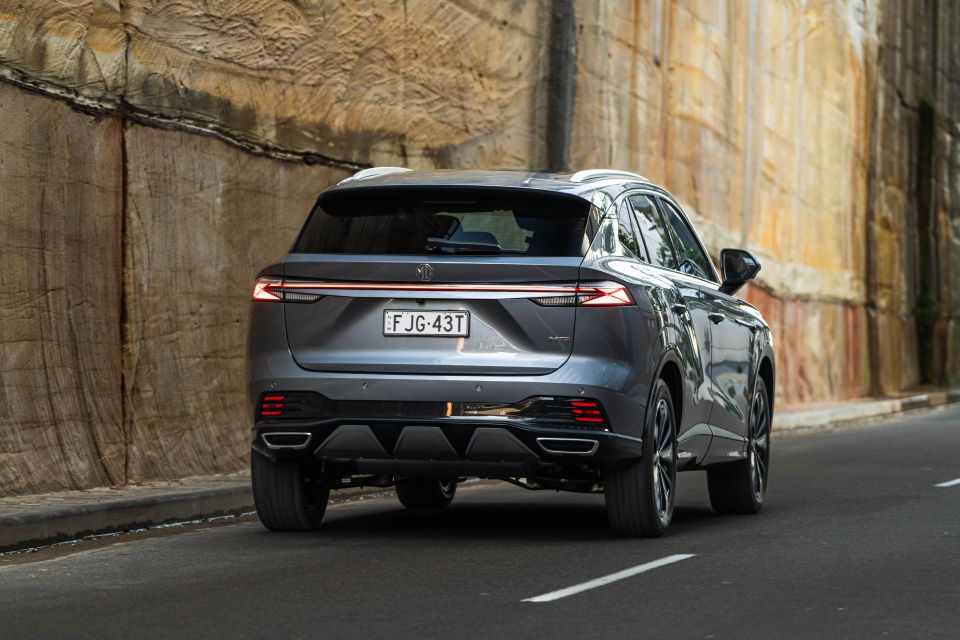
The ride is also drastically improved compared to the previous-generation model. It’s still comfort-oriented, but nowhere near as overly soft. This means it doesn’t feel like it’s going to fall over itself in the bends.
The car can tackle pimply metropolitan roads without breaking a sweat, and large speed bumps don’t thwack into the cabin like in some vehicles.
Despite this, the new HS is still not the most dynamic vehicle ever, but it’s not pitched as one. The steering is light enough that it makes twirling the tiller from lock to lock a breeze.
As standard, the flagship MG HS Essence has front and rear parking sensors, plus a surround-view camera with a transparent chassis mode. This means there’s no excuse for scraped bumpers or wheels when parking.
During one trip, however, the surround-view camera system decided to not work at all. Instead, it brought up a BRAT green colour where the camera feeds normally go on the touchscreen.
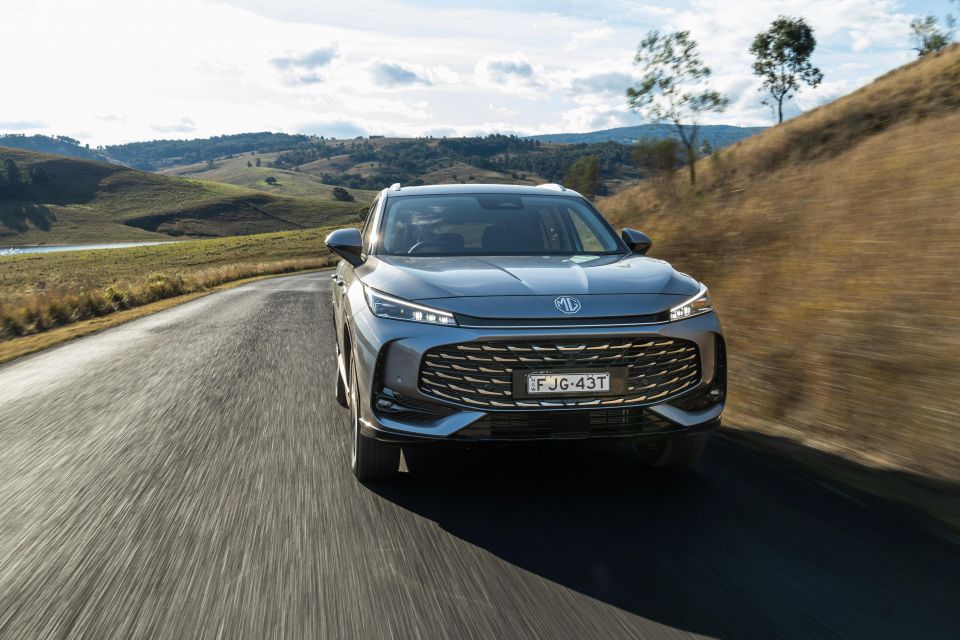
Strangely, the system fixed itself after I turned the vehicle off, locked it and then returned later in the day.
Although the HS is great in the traffic light grand prix, it also shines out on the open road. There’s plenty of oomph to get up to highway speeds and enough in the tank to conduct overtakes without too much pre-planning.
The cabin is almost whisper-quiet at highway speeds, which is incredibly rare at this end of the mid-size SUV segment. There’s only a slight amount of road noise, but this is a common complaint.
On the safety front is where this appealing package starts to come undone.
First up, the adaptive cruise control loves to leave a generous gap between the car ahead, even on the closest distance setting. This means other cars will jump ahead of you and cause the car to stamp on the brakes.
There are better adaptive cruise control systems out there, but for this price point it’s fine. I’ve had similar gripes in this car’s rivals.
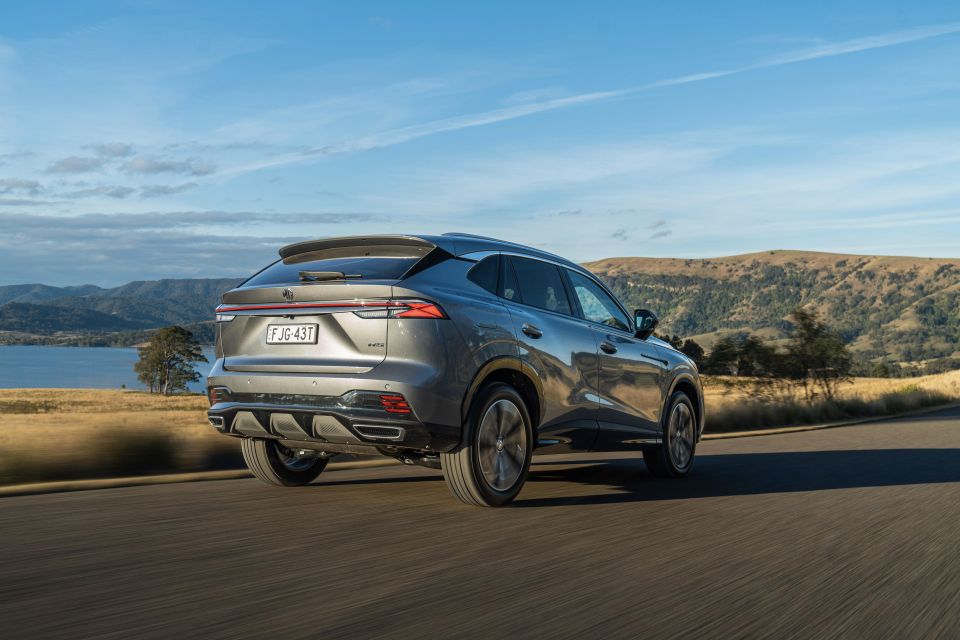
Building on that, the Intelligent Cruise Assist system that combines adaptive cruise control and lane centring is way too hands-on. Sometimes it can almost jerk the steering wheel out of your hand, and even on straight pieces of roads it bounces between the lane markings.
For this reason I preferred to stick with regular adaptive cruise control and take control of the steering myself. Thankfully, the regular lane-keep assist is good and only intervenes when you stray from the lane markings.
The blind-spot monitoring system does what it should for the most part but is sometimes a little too sensitive. There were instances where I was changing lanes and a car two lanes across caused the emergency lane-keeping assist to activate.
Unfortunately, the HS has now also joined the growing list of cars with annoying safety feature bings and bongs – namely for the driver attention monitoring and speed limit assist system.
Both of these safety features default to on every time you drive the car and to switch them off you need to dive into menus on the touchscreen. Thankfully you can configure a shortcut button on the steering wheel to take you directly to the vehicle setting’s menu, but there’s no way to turn them off for good.
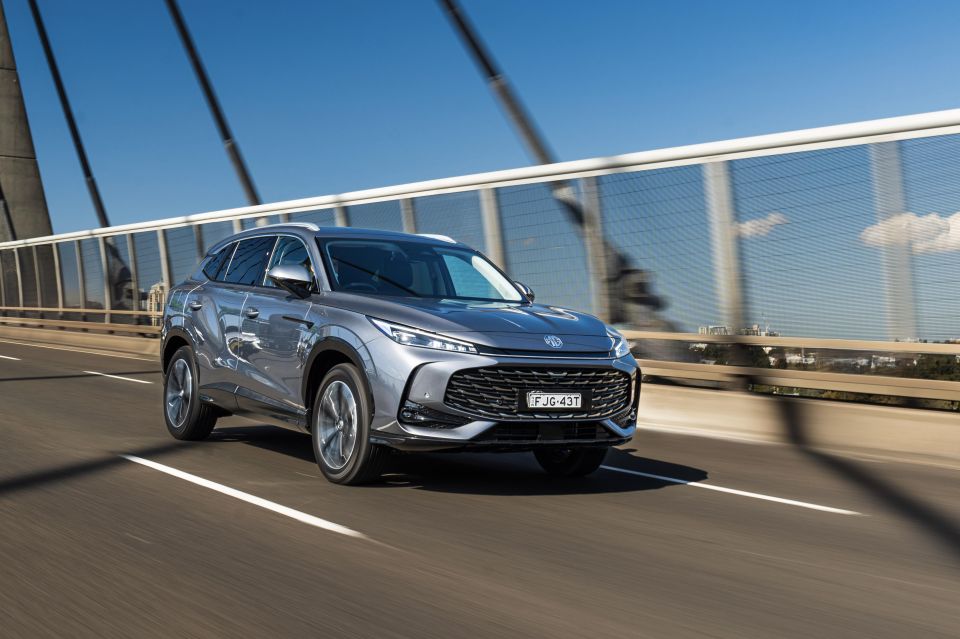
If you’re looking at the road ahead, the driver attention monitor doesn’t chime, but it does when you look down at your speed on the digital instrument cluster or change something on the touchscreen. This can be really frustrating.
What’s more, the speed limit assist system has a more obnoxious bonging sound and is frequently incorrect.
As an example, I live on a street with a 50km/h limit, but the HS reckoned the limit was 70km/h. The system also showed school zone speed limits even when it wasn’t the time of day they’re active.
Thankfully, you can configure the speed limit assist system to still display the posted speed sign, even if it is frequently wrong, but not chime when you go above the limit in the settings.
There are currently three variants in the MG HS range – on test here is the flagship Essence.
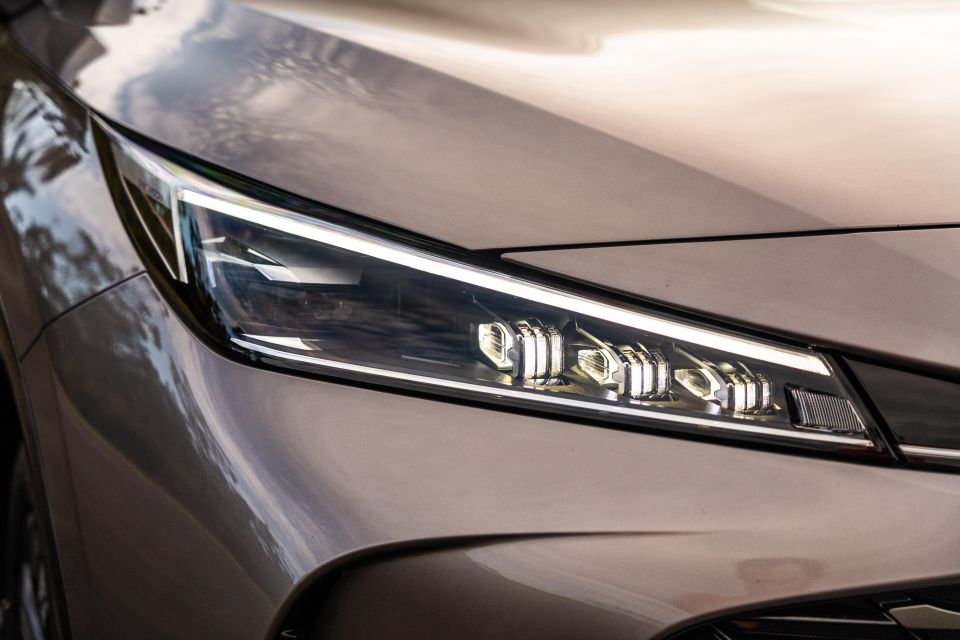

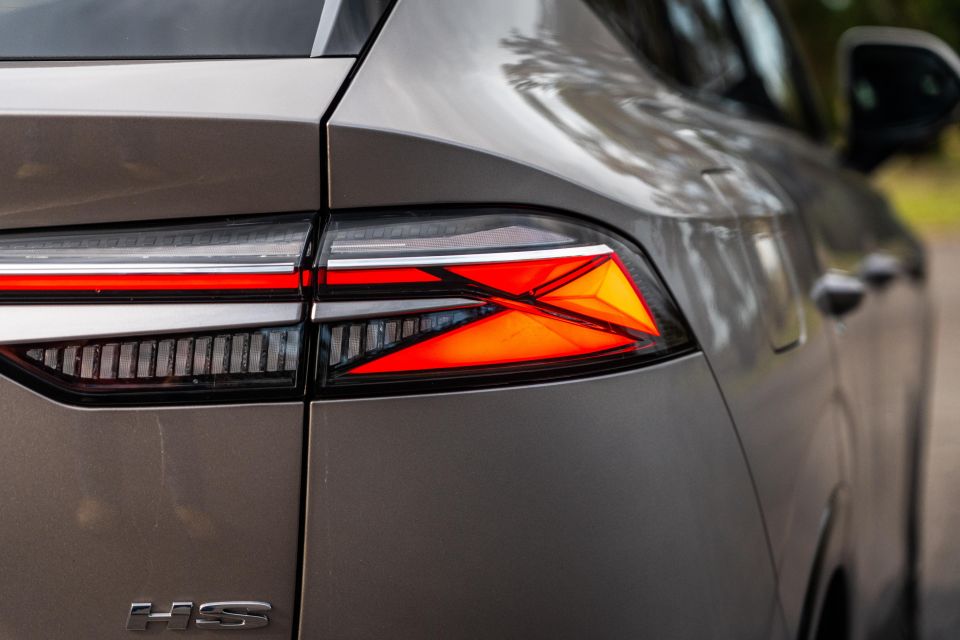

MG HS Vibe highlights:
Excite adds:
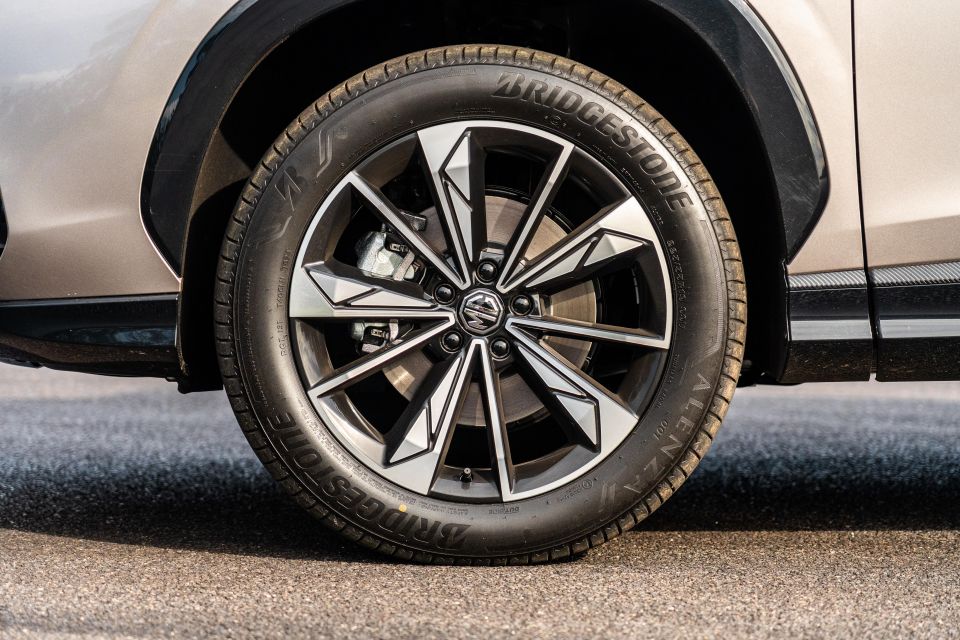

Essence adds:
The new HS is yet to be tested by ANCAP or Euro NCAP, and is therefore unrated. MG has said it’s “confident” the new model will achieve a high safety rating once it has been assessed.
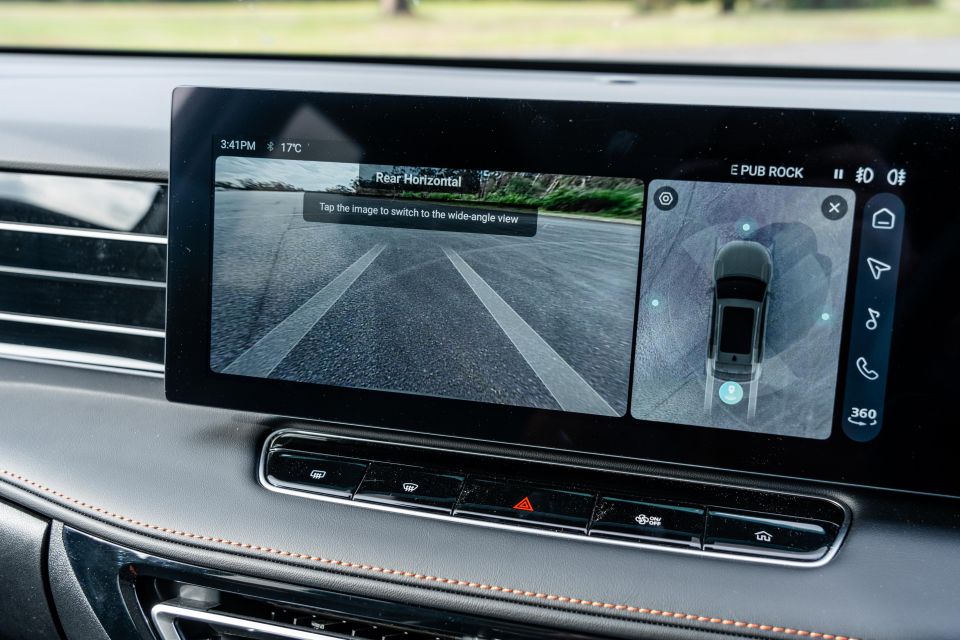
Standard safety features include:
Excite and above add:
As with all new MG models, the HS is covered by an “industry-leading” 10-year, 250,000-kilometre warranty. Roadside assistance is also offered for the duration of the warranty and is activated each time the vehicle is serviced within the MG network.
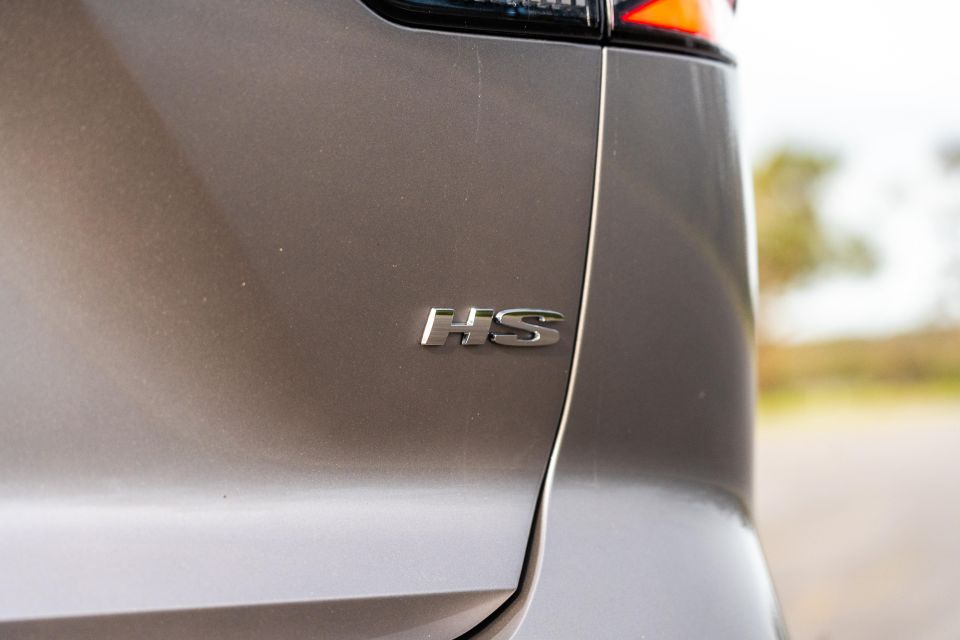
| Running costs | MG HS |
|---|---|
| Warranty | 10 years, 250,000km |
| Roadside assistance | 10 years (service activated) |
| Service intervals | 12 months or 15,000km |
| Capped-price servicing | 10 years or 150,000km |
| Total capped-price service cost | $5741 |
To see how the MG HS lines up against the competition, check out our comparison tool.
This car really surprised me, and that’s something I didn’t expect to say about an MG.
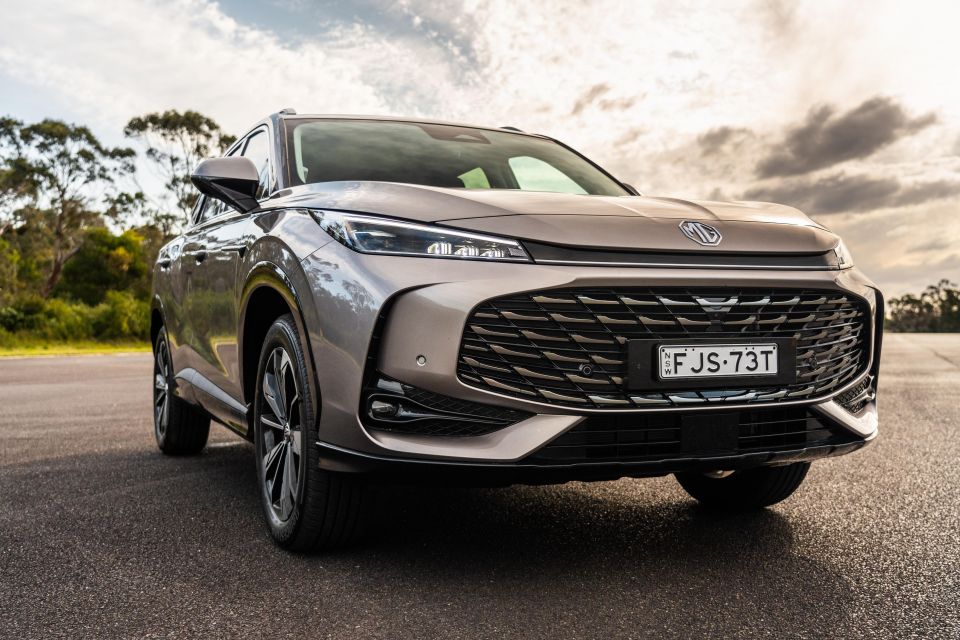
If there was an award I could give out for the most improved car this year, it would definitely go to this new-generation HS.
The driving experience is well and truly up to par with more expensive German, Japanese and Korean rivals.
This new wet seven-speed dual-clutch automatic transmission is tuned impeccably and feels very Volkswagen-like, there’s plenty of sound deadening, plus the ride is no longer as floaty and soft as it used to be in previous-generation guise.
The interior has also taken what seems like a two-generation jump in terms of aesthetics and technology. The wraparound display for the instrument cluster and touchscreen looks like it could be straight out of a BMW or Kia, and even if some of the finishes are hard plastic, they look premium thanks to the faux stitching.
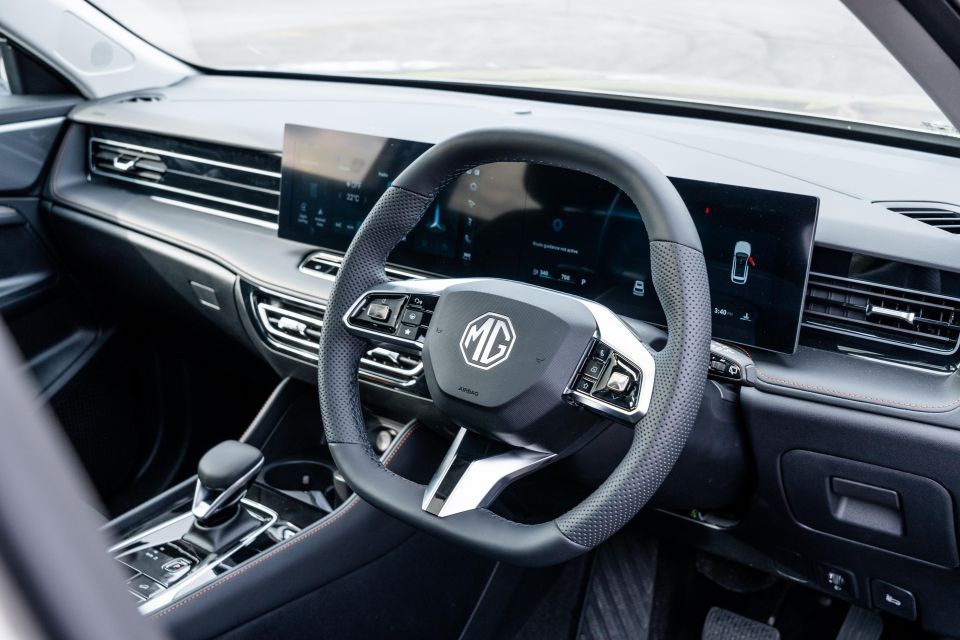
Things aren’t perfect however…
It’s frustrating MG has introduced safety features to this car that chime so incessantly they make you want to switch them off. Even worse, you need to switch them off every time you drive the car via a buried touchscreen menu.
It’s also disappointing the touchscreen infotainment system doesn’t appear to have enough computing power to jump from page to page without lag. This is meant to be the centrepiece of the car’s interior.
Despite my gripes, there’s a lot to like about the new-generation MG HS and you won’t be disappointed regardless of the trim level you opt for.
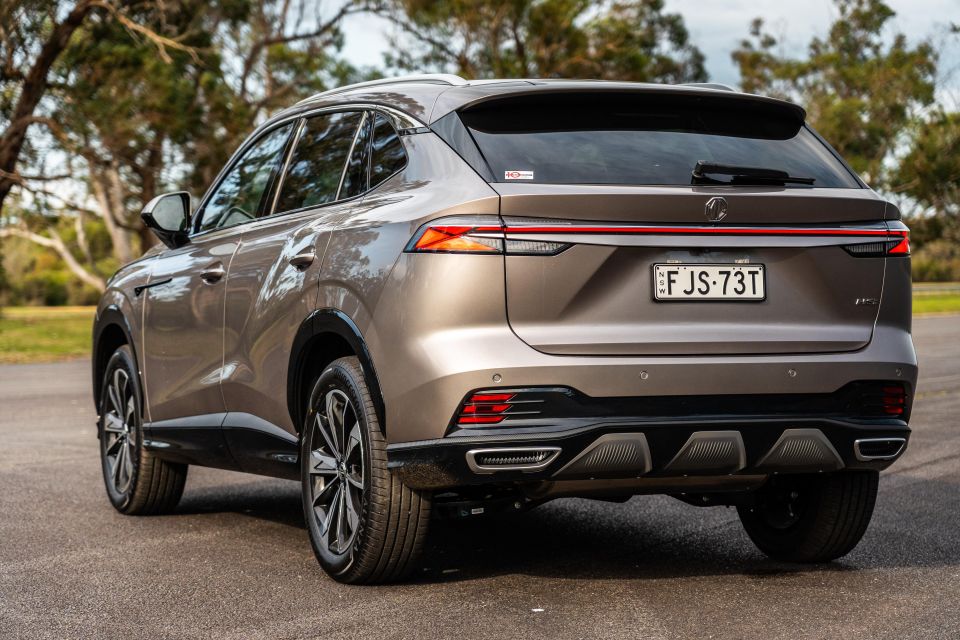
Interested in buying an MG HS? Get in touch with one of CarExpert’s trusted dealers here
Click the images for the full gallery
MORE: Everything MG HS
Take advantage of Australia's BIGGEST new car website to find a great deal on a MG HS.
Discover and compare similar models
Jack Quick is an automotive journalist based in Melbourne. Jack studied journalism and photography at Deakin University in Burwood, and previously represented the university in dance nationally. In his spare time, he loves to pump Charli XCX and play a bit of Grand Theft Auto. He’s also the proud owner of a blue, manual 2020 Suzuki Jimny.


James Wong
1 Month Ago
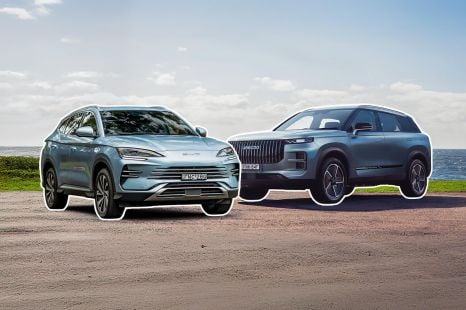

Andrew Maclean
29 Days Ago
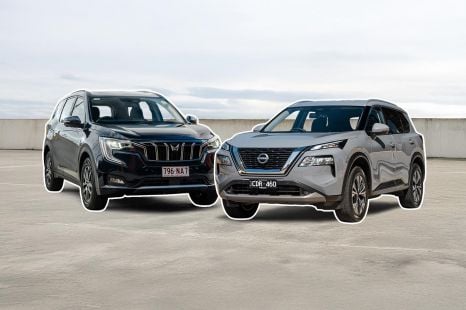

Andrew Maclean
25 Days Ago
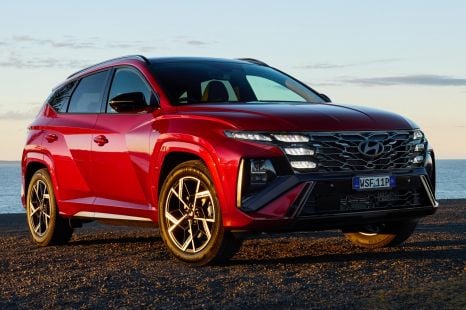

James Wong
24 Days Ago
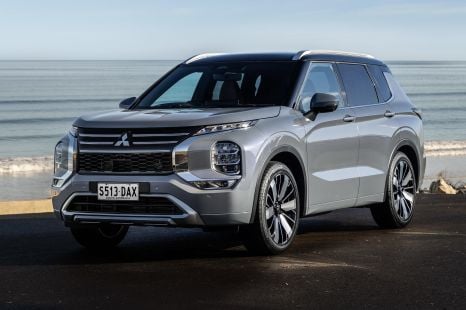

Max Davies
17 Days Ago
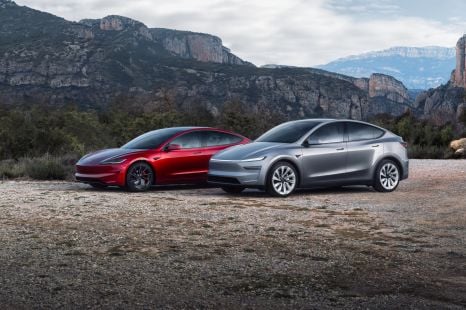

Damion Smy
12 Days Ago